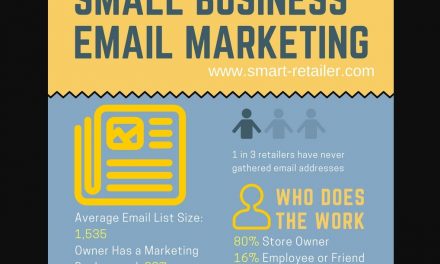Today, we live and breath the Internet. We use it for personal and public communication, shopping, information research, entertainment, job searches and more. Yes, only about half of small businesses have their own website, and almost none have one that is mobile friendly. Our economy is becoming more and more digital by the moment, and all of us need to catch up with the times. Don’t let these excuses fool you:
- My customers don’t use the Internet. Unless your demographic is entirely made of people 70 years old and up, your customers use the internet. And even in that unlikely case, the kids of your target audience may be the ones making purchases, in which case, your customers use the Internet.
- Websites are costly. Websites can absolutely be costly, but they can also be free, and most fall somewhere in-between. Many businesses create professional websites from WordPress, which can be set up for little to no money. If you’re wanting something customized, you’ll need to find a designer, who will charge anything from a few hundred dollars on up.
- Websites take a lot of time. The amount of time necessary to manage a website depends entirely on what you want to do with it. While websites perform best when regularly updated, creating a site and then leaving it alone is still way more productive than having no website at all.
- I have no interest selling online. Your website doesn’t need to sell anything. It just needs to inform potential customers of what you offer and how to get in contact with you.
A website is signage. You wouldn’t have a storefront without a sign, would you? This is signage for the web, and you need it.
So, I’ve convinced you to get a website. Here are five things to keep in mind.
1. Domain Name
The domain name is the address used to find your site, such as smart-retailer.com.
- Keep it short. Longer names are harder to remember and are more likely to be mistyped.
- Keep it as similar to your company name as possible.
- If your first choice is taken, try adding words like “the” or “company” to it.
- Try and get a .com domain, as that is what people think of by default. If your choice isn’t available, consider .net or .org. There are many other options as well, but they get increasingly obscure.
2. User Friendliness
Imagine how your customers will use the site. What kind of information will encourage them to make a purchase? And how can you present that information in a clear, logical fashion? A viewer who can’t get hooked in 30 seconds will likely give up and go elsewhere.
- Categorize pages in a logical fashion and present them in a navigation bar across the top or along one side of the page.
- Use direct and easy-to-understand language.
- Make the design attractive without being overwhelming. Your words and images are your primary focus. The visual design is window dressing. Don’t let it distract readers.
3. Contact Information
Almost half of small business websites don’t give a phone number! People may want to double-check you’re open or inquire about some aspect of your business before making the effort to visit your store. You might not make sales over the phone, but that doesn’t mean you shouldn’t be taking calls.
- If you are a brick-and-mortar business, you should include your physical address.
- Everyone should include their business phone number.
- Everyone should provide some electronic means of communicating with you, either through a web form (which goes to your email box) or through giving out a business email address.
- If you use social media such as Facebook or Twitter, provide links to those accounts.
4. Mobile is King
Mobile devices now account for more than half of Internet traffic, so your website had better be ready for them. If you’re having custom work done, your designer should be able to make your site mobile-friendly. If you’re using a platform like WordPress, you can choose from hundreds of free and premium “responsive” templates, meaning they adjust according to the device reading them.
5. Optimization
Search Engine Optimization (SEO) is what drives traffic to your site. Search engines like Google look for repeated word use and words placed in a variety of locations when it indexes your site and returns search results. The basics are actually pretty easy to learn, and a lot of it is common sense: describe yourself in terms people will be using in their searches.
Do not, however, keyword stuff, repeating valuable words over and over again in an unnatural way. Search engines might outright ignore pages built in this way.
Image courtesy of medithIT via the 2.0 Creative Commons License.









